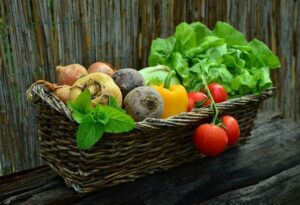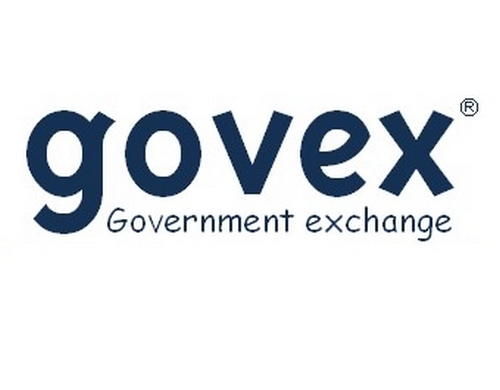Use public procurement to make healthy and sustainable food accessible and affordable to all Europeans
 Use public procurement to make healthy and sustainable food more easily accessible and affordable to all Europeans, a leading MEP together with local governments and campaigners told EU leaders.
Use public procurement to make healthy and sustainable food more easily accessible and affordable to all Europeans, a leading MEP together with local governments and campaigners told EU leaders.
Sarah Wiener, Member of the European Parliament’s Agriculture and Rural Development Committee (AGRI), joins support for a new coalition of municipalities, environmental, social and health non-profit organisations calling on EU and national leaders to introduce targets and measures helping schools, hospitals and public building canteens to provide healthier food menus. The Buy Better Food initiative comes as the European Commission prepares a new legislative framework – the Sustainable Food System initiative – which promises to set minimum criteria for the sustainable and healthy public procurement of food across the EU.
Public money must be used to purchase healthy and sustainable food, which can help reduce both greenhouse gas emissions and health-related costs, while boasting local communities’ prosperity and wellbeing. Mandatory targets for better meals would also help public procurement become a driver of change in the way we produce and eat food. They would steer Europe towards a more resilient and equitable food system as Europeans face the interconnected threats of increasing food prices and poverty as well as climate and environmental breakdown, campaigners said.
The coalition wants EU institutions and member states to recognise, champion and finance public food procurement as a “game-changer” for healthier and more sustainable diets based on organic and nutritious fruits and vegetables as well as more plant-based proteins and less but better meat, as advocated in the EU’s roadmap for better food known as the Farm to Fork Strategy.
Member of the European Parliament Sarah Wiener, who was shadow rapporteur of the European Parliament report on the Farm to Fork Strategy and is a well known Austrian chef and organic farmer, said:
Public procurement has the opportunity to incentivise more organic, sustainable and local production, leading to healthier diets and a fairer distribution of food in society. It is therefore high time that the EU sets targets to promote organic, sustainable and regional food in public canteens, in hospitals and in schools!
At the local level, an increasing number of municipalities are making important steps in this direction, anticipating the rules being considered by the European Commission. The city of Ghent (Belgium), for example, has put in place an award-winning food strategy combining targets for food waste reduction, climate action and support for small farmers.
Tamara Bruning, head of catering services at the city of Ghent, said:
The city of Ghent has committed to building a more sustainable and healthy food system through better public procurement. Improving our canteen and catering services can help our city reach climate neutrality by 2050, while also upholding the principles of wellbeing, fairness and inclusion for our citizens and future generations.
As a local government, we constantly strive to find new solutions to today’s social, health and environmental problems, and are happy to share our knowledge and experience with other European cities.
Another example is the city of Mouans-Sartoux (France) which has a long history of procuring food which is healthy for both people and the planet. As Gilles Parole, deputy mayor of the city of Mouans-Sartoux, explained:
Mouans-Sartoux’s school canteens have been serving 100% organic and mostly local meals for 10 years now. Facing disruptions to food supply chains and burdensome tendering procedures, the city created the first municipal farm in France in 2011 which supplies around 90% of the vegetables consumed by children. Thanks to this experience, we know that public bids can provide local authorities with “purchase power” to make local food systems more sustainable. We now need the European institutions to do their part and include food-related rules in the EU’s public procurement directive.
Beyond Brussels, the United Nations Food & Agriculture Organisation and the World Health Organisation have also called for a more responsible use of public food procurement that works for people, workers and the environment. The recent crises Europeans are facing, from the COVID pandemic to the war in Ukraine, highlight the need to accelerate change towards a more resilient and sustainable food system that provides healthy food to all.
Facts and figures
The Problem:
- Food systems globally contribute to 1/3 of total greenhouse gas emissions.
- Unhealthy diets are responsible for 49% of cardiovascular diseases, the EU’s main cause of death, with an estimated annual cost of €102 billion for health systems and society.
- 16-22% of EU school-age children are overweight, 1/4 of them are obese.
- Within the agricultural sector in Europe, livestock farming is responsible for 78% of biodiversity loss and 81% of global warming.
- In many EU countries, migrant workers in the food industry often face slavery-like working condition.
The Solutions:
- The introduction of vegetarian meals in schools in Turin (Italy) resulted in a 32% reduction in the carbon footprint of school menus.
- By procuring up to 77% of their food locally, the Nottingham University Hospitals NHS Trust (UK) saved 150,000 food miles and £6 million/year.
- 90% of public sector meals in Copenhagen (Denmark) are organic, a target that has influenced local producers to transition to more sustainable practice.
- In Greenwich (UK), the provision of healthier and more nutritious school meals resulted in improvement in educational outcomes and higher attendance.





Vous devez être connecté pour poster un commentaire.